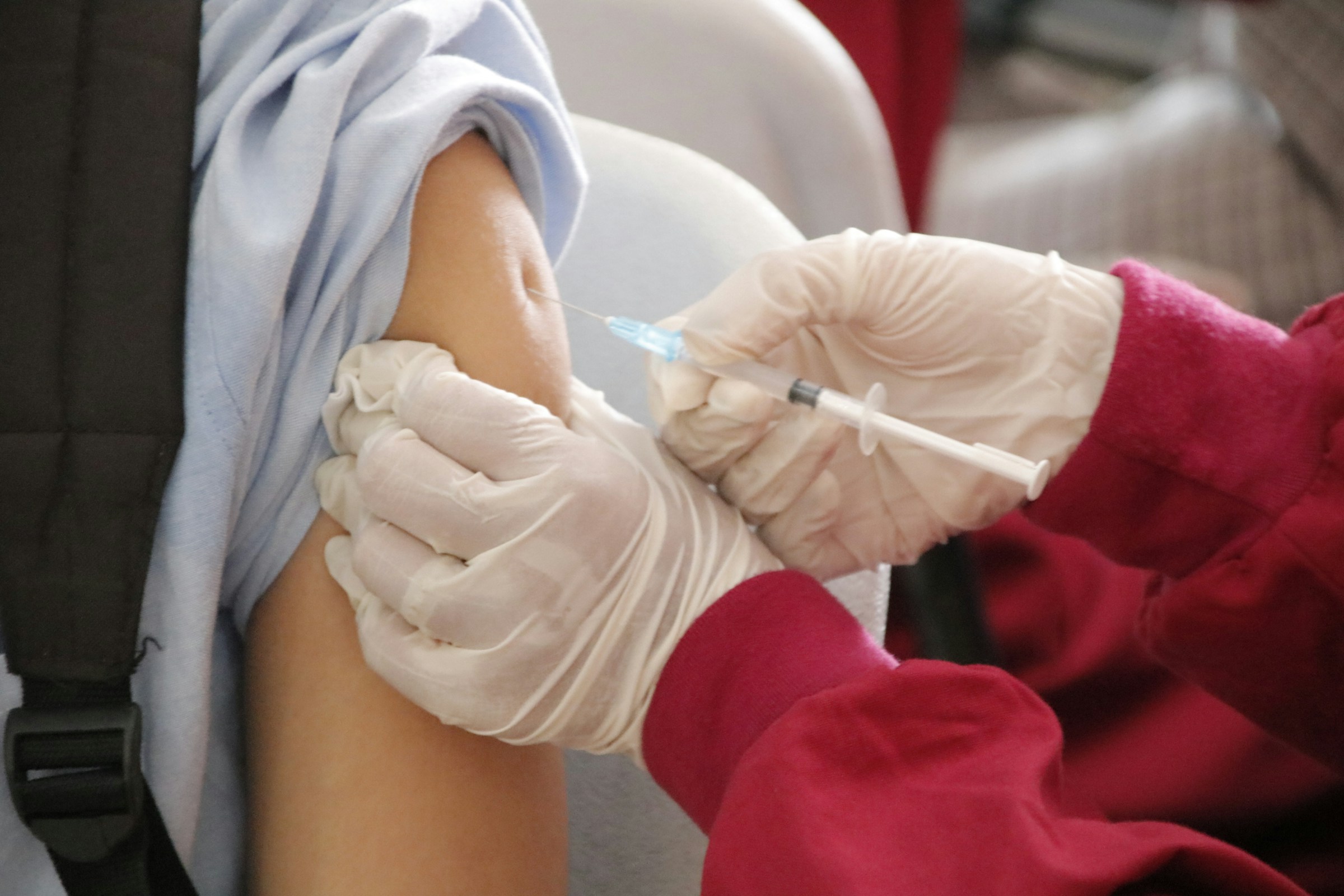Tetanus
Tetanus is a vaccine-preventable disease caused by a toxin produced by the bacteria Clostridium tetani. Tetanus spores are found in soil throughout the world. The disease is acquired when material containing these spores contaminates a wound. The toxin released from the bacteria may then attack the nerves of the brain and spinal cord.
Tetanus-prone wounds include the following:
– damaged tissue and deep puncture wounds where there has been contact with soil or manure
– wounds containing foreign bodies
– bone fractures where the skin is broken
– wounds or burns in patients who have infection of the bloodstream
– Tetanus occurs worldwide, but is more common in resource-poor countries where vaccination coverage is low
Generalised tetanus accounts for most cases worldwide; this is associated with intense painful contraction and spasm of the skeletal muscles. It commonly presents with trismus (also known as lockjaw), characterised by spasm of the facial muscles. Other effects of these muscle spasms include: stiffness of the neck, forceful arching of the back, abnormal breathing patterns and difficulty swallowing. With intensive medical support, death from tetanus occurs in 10% to 20% of cases.
Prevention
It is important to be aware of the risk of accidents while travelling. Travellers should thoroughly clean all wounds and seek appropriate medical attention.
Tetanus vaccines
Travellers should have completed (or be up-to-date with) a primary vaccination course according to the NHS vaccination schedule. If travelling to a country where medical facilities may be limited, a booster dose of a tetanus-containing vaccine is recommended if the last dose was more than ten years ago even if five doses of vaccine have been given previously.
Frequently Asked Questions
A person can catch Tetanus if bacteria from soil or animal manure enters the body via an open wound, a scratch, or an animal bite. Additionally, a person can catch Tetanus if they are injected with contaminated drugs, and it is also possible for the bacteria to enter the body via a body piercing.
Yes, Tetanus bacteria can enter a person’s body via a scratch.
If you have received three shots of the Tetanus vaccine, you should be protected against the Tetanus Bacteria for around ten years.
The Tetanus vaccination is recommended to people planning on travelling to any part of the world; however, Tetanus is more common in the below areas:
– South Asia
– Africa
The main symptoms of Tetanus include:
– Lockjaw (stiffness of the mouth)
– Muscle spasms
– Breathing difficulties
– High temperature
If you are planning on travelling to parts of the world where Tetanus is common or where medical facilities are limited, then The Travel Health Clinic can offer a Tetanus booster. The booster is recommended if it has been over ten years since you received your Tetanus vaccine.



